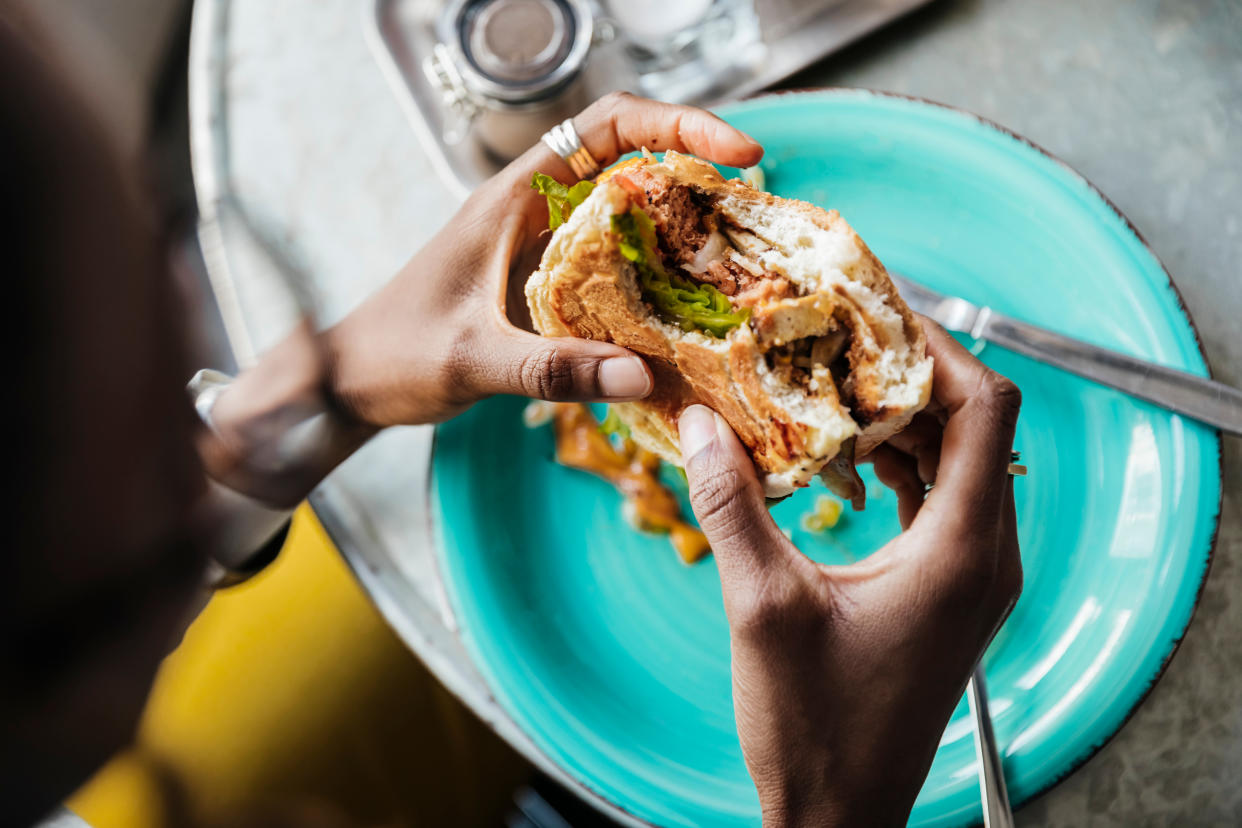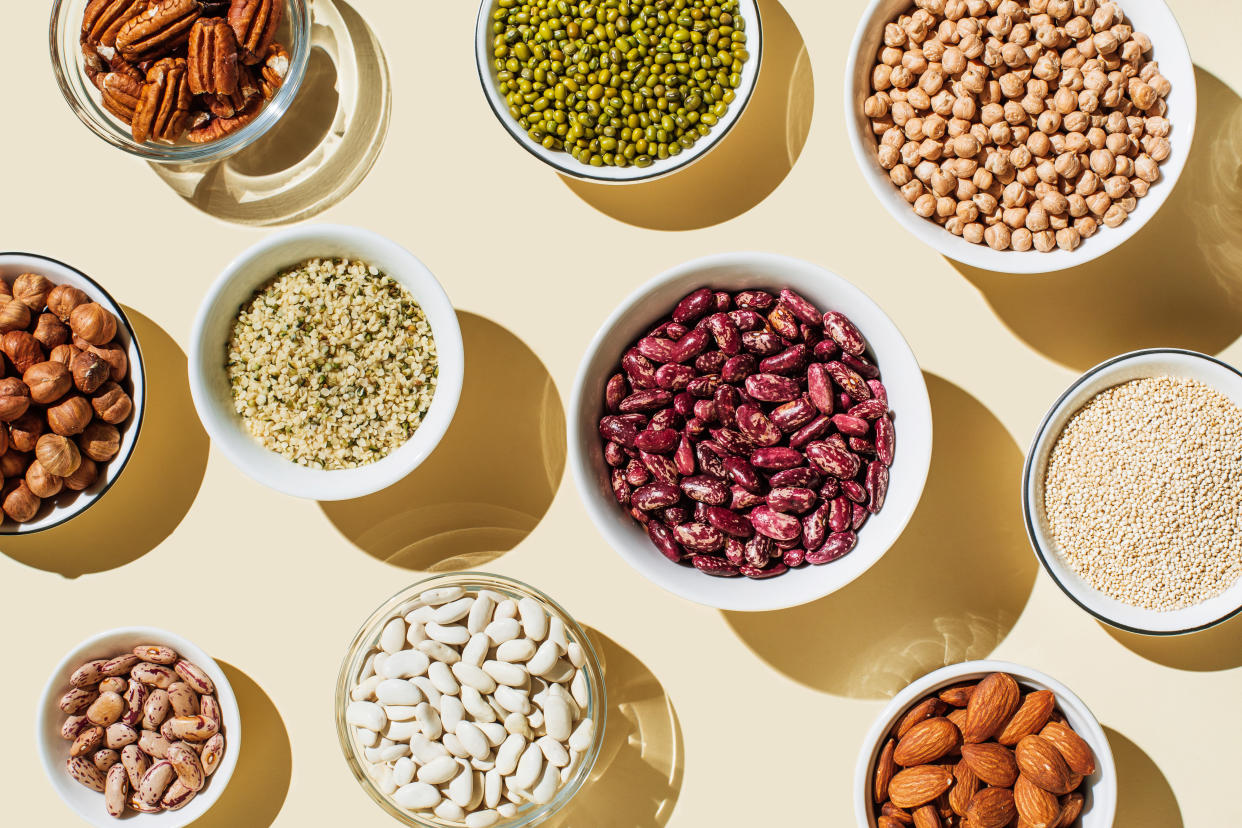Is a vegan diet good for your gut health? Experts weigh in

Each January brings with it a fresh start, and a chance to participate in the annual ‘Veganuary’ campaign.
The campaign began in the UK in 2014, and last year saw the biggest participation globally ever, with around 700,000 people attempting to consume only a vegan diet for the month of January.
Since the campaign began, an estimated one in 10 Brits have given it a go, with up to 36% of people saying they would continue with their vegan diet after the month is over.
While veganism is growing in popularity in the UK (the number of British vegans quadrupled between 2014 and 2019), what are the benefits of a vegan diet and what impact can it have on your gut health?
What is gut health and why is it important?
Gut health has become a buzz term of late, but it refers to the bacteria and other microorganisms in your stomach that make up your gut microbiome.
"The bacteria help to break down food, turning them into nutrients for your body. The food you consume can affect how your gut responds and the balance of bacteria," Elizabeth Wall, nutritionist and a research and development specialist at Nutrivitality, explains.
"Your gut biome is linked to your immune system, mental health, autoimmune diseases, gastrointestinal disorders such as IBS, digestion, sleep and much more which is why it’s so important to take care of your gut health."

Signs of poor gut health
Alison Cullen, nutritional practitioner from A. Vogel, says that some signs your gut health may be out of balance includes symptoms such as:
Bloating
Wind
Constipation
Diarrhoea
Feeling that food isn’t moving through (lying like a stone in the stomach)
Acid reflux
Sugar cravings
Wall adds that eating too many processed foods, smoking, and drinking alcohol can all affect your gut, as can stress and some antibiotics.
"Some signs to look out for include poor sleep, digestive issues such as heartburn, low mood and anxiety, and an increase in illness such as common colds due to a poor immune system," she adds.
Benefits of a vegan diet on gut health
"A wholefood, plant-based diet is associated with many benefits, from better cholesterol profiles and weight balance, to cancer rates and longevity," Cullen says.
"However, it is just as possible to be a junk food vegan these days as it is to have a non-vegan junk food diet, and junk food is not supportive of good health no matter what its dietary nomenclature."
Wall adds that wholefood vegan diets tend to be higher in prebiotics than other diets, which can help to support gut bacteria.
"Prebiotics help the bacteria already in your gut and digestive tract and yoghurt – or soya and coconut yoghurt for vegans – is a great way to increase this. The vegan diet is also high in antioxidants and anti-inflammatory foods such as fruits and vegetables, legumes, nuts and seeds," she adds.

"However, some people who suffer from irritable bowel syndrome (IBS) or bad digestion may find that a diet higher in fructose or legumes can make their gut worse. Since gut health is very complex, and can be different for each person, it’s important to speak with a doctor or nutritionist before deciding on a vegan diet."
Best diet for gut health
While a vegan diet has a host of benefits, you can also gain these benefits if you are following other diets such as a vegetarian diet, pescatarian, or flexitarian.
"Each diet has pros and cons for your gut health, but the most important thing to remember is to have variety in your diet, touching on all the food groups," Wall says.
"Whether it's protein, carbohydrates or fibre, each has its function within the gut. A flexitarian diet is likely to offer you the most variety and help reduce inflammation which can help with conditions such as IBS and Crohn's."
Cullen adds that the best diet is one including a large consumption of non-processed plant foods as these are most likely to nourish the gut.
"Fermented foods such as sauerkraut can be helpful in small quantities, but many gut issues resolve with warm, cooked foods rather than a heavy reliance on raw, cold foods," she adds.
"Avoiding highly processed foods full of additives, salt and refined sugar is the key to good gut health, regardless of whether the diet is vegan or omnivore or anything in between."
Best foods for gut health
When it comes to gut health, you really are what you eat and some simple changes to your diet can have a positive impact on what’s going on inside.
Fibre
"Fibre in foods can improve your gut health as it will keep you regular and feed the healthy bacteria in your gut," Wall explains. "It also affects the digestion and absorption of nutrients."
Wholefoods
Cullen says that wholefoods, with a "heavy bias towards simple, plant-based meals, full of freshly cooked vegetables" are best.
Wall adds that fruits, vegetables, legumes, nuts, and wholegrains are a good example of the types of wholefoods to incorporate into your diet.

Water
Water is key for the functioning of your body, and it can play an important role in gut health too.
"Drinking enough water is a cure for a lot of ailments in the body, and water assists in the breakdown of food so that your body can absorb nutrients," Wall says.
"For variation, green and black tea and coffee – not on an empty stomach – can also be beneficial for our gut microbiome."
Avoid processed foods
"Reducing the amount of ultra-processed foods is also vital, as these can trigger your gut and cause flare-ups, especially for those who suffer from IBS," Wall says.
"While almost all foods have some kind of processing, opting for food which retains their nutritional value and has no added sugar, salt, additives or fats will help you on your gut health journey. Usually cooking fresh is the best way to avoid this."
Wall also suggests avoiding overconsumption of deli meats, cereals, ready meals, sweets, desserts, and pre-packaged foods.
Healthy habits
Along with eating whole, unprocessed foods, Wall says creating healthy lifestyle habits is also important for gut health.
"Since stress, reduced physical activity and anxiety can be caused by gut problems, looking at techniques and lifestyle changes to keep your day-to-day lives as relaxed as possible is vital," she adds.
"Whether this is starting the day with a walk, meditation before bed or switching off to a book instead of your phone, all of these habits can help."
Veganism: Read more
Should you go vegan for your health? (Yahoo Life UK, 6-min read)
Health implications of raising a baby vegan as mum says her son is 'never sick' (Yahoo Life UK, 5-min read)
Half of Brits will be vegetarian by 2040 and eating 'air protein' in 10 years (Yahoo Life UK, 6-min read)


